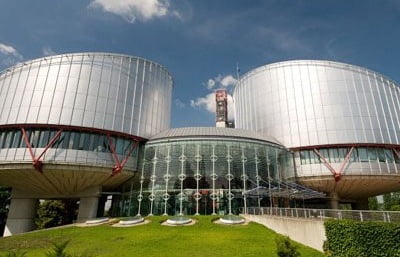The Committee of Ministers of the Council of Europe examined at its 1348th meeting on June 4-6 the implementation by the Georgian authorities of the judgment of the European Court of Human Rights (ECHR) on former Prime Minister Vano Merabishvili’s pretrial detention case.
The ECHR case concerns violations against Merabishvili, in the context of criminal proceedings launched against him in December 2012 and in January 2013, for alleged embezzlement and abuse of power, which Merabishvili claimed were aimed at excluding him from politics.
He also claimed that his persecution continued during the pretrial detention when in December 2013 he was allegedly removed from his cell and taken for a late-night meeting with then Chief Prosecutor Otar Partskhaladze, whom he accused of intimidation for the purpose of obtaining information about the death of former Prime Minister Zurab Zhvania, and on alleged secret offshore bank accounts of ex-President Mikheil Saakashvili.
The Committee of Ministers recalled that this case concerns a violation of Article 5 § 3 (right to liberty and security) because of the absence of sufficiently reasoned judicial decisions for the continued pretrial detention of the applicant, on reasonable suspicion of having committed one or several offenses.
It further recalled that the case also concerns a violation of Article 18 (limitation on use of restrictions on rights) taken in conjunction with Article 5 § 1 “since the pretrial detention during this continuing period was found to have been used by the Chief Public Prosecutor also for the illegitimate purpose of pressuring the applicant into providing information on matters unrelated to the criminal case against him.”
The Deputy Ministers “again urged the authorities to ensure that the current investigation is sufficiently thorough to establish the identity and criminal liability of those responsible, sufficiently broad in scope to determine whether the abuse of power found by the Court had any impact on the criminal proceedings against the applicant, and that it is completed with diligence and speed.”
They also “noted with concern that the domestic court upheld the decision of the Prosecutor’s Office at this stage of the investigation not to grant the applicant victim status,” and “requested the authorities to re-examine the applicant’s victim status and in any event to ensure that he continues to enjoy these rights throughout the investigation.”
The Committee of Ministers further noted that “the applicant had the opportunity to apply for reopening of the criminal proceedings against him, but that the courts of appeal rejected his motions on the grounds that there was no causal link between the violations found by the European Court and the convictions he was challenging.” They then asked the authorities “to keep the Committee regularly informed about developments” as the applicant’s appeals are pending before the Supreme Court of Georgia.
The European Court of Human Rights rules on individual or state applications alleging violations of the civil and political rights set out in the European Convention on Human Rights. Once ECHR judgment becomes final, it is transmitted to the Committee of Ministers for supervision of its execution.
Previous Decision:
This post is also available in: ქართული (Georgian) Русский (Russian)

